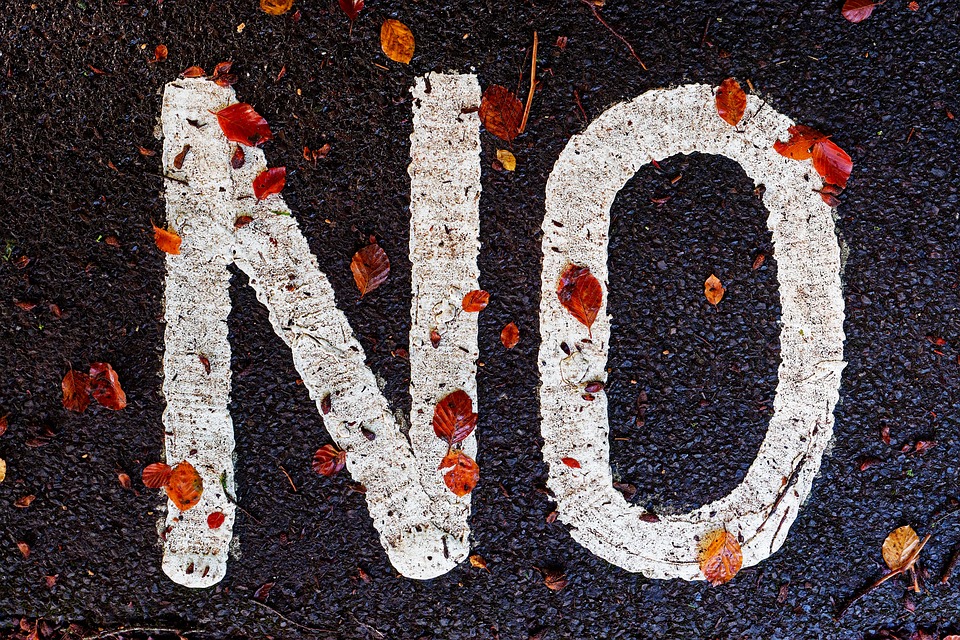
Establishing Your Value
It can be hard to grasp that how others treat us is a reflection of how we treat ourselves and sometimes how they treat themselves. So then, the question of how do I practise self-respect in my relationships arises when we feel a certain amount of disrespect from others. The concept of self-respect is another vital pillar in cultivating self-worth. The respect we have for ourselves is what reminds us of our value as a person, helps us set healthy boundaries and how to prioritise our well-being.
Understanding Self-Respect In Relationships
When I talk about self-respect in a relationship, I’m referring to the regard I hold for myself that informs my decisions, behaviours, and interactions with my partner. It’s that inner voice that reminds me of my worth, even when I’m deeply connected to someone else. It’s about not losing myself in our shared existence and also maintaining a healthy self-image.
A relationship thrives when there’s a balance; when both individuals value themselves just as much as they value each other. I realized this when I reflected on a past relationship where I felt unseen and unheard. The respect I showed was not being mirrored back and thinking about it now makes me realise that because I at that time wasn’t showing myself any respect.
It taught me that self-respect shouldn’t waver for the sake of love. When I started to apply this understanding, I noticed a profound change in how I approached relationships – that with myself and with others- thereafter.
The Experience of Self-Respect
Through my experience, I’ve learned that self-respect manifests in several ways and can be grand experiences as well as subtle ones. In a healthy relationship, it might look like speaking up and openly about my needs or leaving a situation that doesn’t serve my well-being. In a less healthy one, I might mute my desires or constantly compromise my comfort for my partner. Self-reflection taught me to discern these signs and act on them—focusing on self-respect maintains my integrity and happiness.
When I started cultivating my sense of self, it became clear that for me to practice self-respect, I had to define and stand up for my boundaries. This realization came to light one time when I had to say “no” to an invitation and risk not being invited again or say “yes” and be in a company that didn’t serve me. I thought for some time then I remembered a quote I had read once – “If the answer is not a Hell Yes immediately then it should be a Definite No!”
Saying No was tough but I reminded myself that this was a step in defining my values – establishing those personal limits that I realized were non-negotiable for maintaining self-respect in any relationship.

Defining Your Boundaries
I used to think that saying no was a form of rejection, something that would push people away. But I’ve learned that setting boundaries is actually one of the purest expressions of self-respect and in a relationship, it’s vital.
I remember when I had to set a boundary for alone time with my partner, I needed the time to reflect and recharge because we used to spend a lot of time together and as lovely as it was, I felt I was neglecting my need for self-reflection and solitude.
The first conversation was scary as I didn’t want him to feel like I was rejecting or getting tired of the relationship. It seemed selfish but when I finally did, it was a turning point for us. Rather than causing an issue, it opened up a discussion about how we could support each other’s needs.
Sticking To Your Values
In another relationship, I made it clear from the start that I had firm boundaries around my career ambitions. I needed my partner to understand and respect that sometimes, work would come first. I was ambitious at that time and getting ahead in my career was a priority for me. Not only did this establish respect for my individual goals, but it also prevented countless misunderstandings regarding late nights with work or additional courses in my spare time.
In the relationships where both I and my partner had self-awareness setting boundaries and communicating them worked. Each time I set a boundary, I noticed a pattern: my relationships began to thrive. There were fewer arguments because we understood where each other stood. Respecting my own boundaries taught my partners to respect them too, which encouraged a deeper sense of mutual respect.
Tips to Cultivating Self-Worth
My understanding of showing myself respect has been one that has been discovered through a lot of trial and error. Just like cultivating any other personal development goal it takes time and may look different for everyone.
The Link Between Self-Worth and Self-Respect
For me, understanding the link between self-worth and self-respect was the turning point. It struck me that you can’t truly have one without the other. Self-worth is about recognizing your inherent value, independent of anyone else’s opinion. I discovered that the little acts I performed in my journey, to put my needs first, were acts that contributed to building my self-respect, and my self-worth naturally followed suit.
The Mirror Strategy
One strategy I found particularly effective was affirmations. My favourite mode is Mirror work, each morning, I’d look in the mirror and remind myself: I am worthy, I am capable, I am deserving, and I am enough. It might sound simple, but the power of such words can’t be overstated. Over time, these affirmations have shifted my mindset and, consequently, how I engage in relationships.
The Introspective Strategy
Another was taking stock of accomplishments—no matter the size. I am a strong believer in the power of journaling be it free writing or bulleted, there is something about putting pen to paper. As part of this journey, I began to document every success, celebration, and moment of joy, from completing a work project to making someone smile. These records served as real-world evidence that I’m contributing something unique to the world around me, strengthening my self-worth and the value I bring to the world.
In my life, these practices began to promote a profound sense of self-worth, and unbeknownst my relationships transformed. The more I valued myself, the more I attracted partners who respected me. Personal growth and relational satisfaction go hand in hand not only romantically but this was also evident in my work life and social circles. Keeping a journal helped me notice the difference in both how I treated myself and how I let others treat me.
Don’t Forget Self-Care
All these effects were a result of making a decision to prioritise myself, my well-being and how I wanted to show up for myself and in relationships. This meant learning to take better care of myself the way I only knew how to.
Self-care looked different for me and when I experienced the energy I got from the activities I did I knew this had to be a regular ritual with a fixed date in my calendar. By making self-care a priority, we give weight to our self-worth, nurturing it in tangible ways. Let me share how routine self-care has played an essential role in reinforcing the respect I hold for myself—and how it can do the same for you.

Lessons Learnt in Prioritizing Self-Care
Talking about self-care in the context of relationships, goes beyond bubble baths and face masks, although those can be delightful. Within a relationship, our self-care regimen must cover aspects of self-care that directly fuel respect for self and the other. It took me a while, but I’ve learned that taking care of my physical, emotional, and mental well-being is essential if I am to be fully present and active in our relationship.
Stacking Up The Little Things
For me, effective self-care started with small, deliberate steps. I committed to regular reflective check-ins in addition to my physical exercise, not because I felt the need to look a ‘certain way’, but because it improved my mood and self-image.
Additionally, carving out time for my hobbies, like baking, allowed me to reconnect with myself. These are just a few of the practices that became non-negotiable in maintaining my self-respect within a relationship.
It’s true that nurturing self-care routines can be challenging. I had to learn how to balance these activities with the time I spent with my partner. In my experience, communication about my needs became key. By explaining why certain practices – like my morning devotion and journaling times – were important to me, I invited understanding and respect from my partner.
Knowing that these are things I need to stay grounded and mentally strong, he encouraged and gave me space these times to indulge in my practices so rather than unintentional neglect of my self-care needs I now had a dedicated space created for this and a partner that supported my efforts.
Respecting Each Other’s Needs
So, how do you harmonize these routines into a shared life? It’s really about negotiation and respecting each other’s needs for personal space and time. My partner and I established ‘me’ times during the week, where each of us focuses on our own self-care routines. This mutual respect for personal space has actually brought us closer, creating more harmony in our relationship.
One thing we had to work on understanding is that prioritizing self-care doesn’t detract from the relationship; instead, it strengthens it by reinforcing the value we place on our own well-being. This is because as our routines looked different it could sometimes feel that we weren’t really invested in each other but our differences mean that his love for kamp sport took him to places that I found to be “violent”. But this is what fills his cup and so I respect it.
One important thing is that the respect I showed myself set the bar for how I am treated. Through my commitment to self-care, I’ve not only upheld my own self-respect but also cultivated a deeper mutual respect, as the foundation for a partnership that is both enriching and empowering.

Building Harmony Through Communication and Mutual Respect
Clear and honest communication is the cornerstone of any strong relationship. Having learnt from past mistakes my partner and I have introduced a “communication pact.” We are committed to expressing our thoughts, feelings, and needs without fear of judgment.
In this regard, in whatever we are discussing, we have established that no one needs to be right in arguments our agreeing to disagree is ok and should be done respectfully. Instead of letting frustration build, we discuss our perspectives and find common ground to develop a solution that respects both our views.
Ensuring that conversations happen in a respectful manner is just as important as the conversations themselves. I recall situations where the tone of our discussion started to become heated, but we had agreed to take a brief time-out if emotions began to overpower logic. This helped us approach the problem with a cool head and ultimately respect each other’s boundaries and opinions better.
Summing It Up
I’ve learnt that mutual respect is an attitude we need to constantly cultivate, one where both partners continually check in with themselves to make sure that they are respecting themselves and also being respected.
Learning to respect yourself in a relationship can be challenging when this is not the norm but with the tips given in this article and a decision to prioritise our well-being, we are able to cultivate a sense of worth through small and simple acts of respecting ourselves. As we do this, our actions are mirrored back to us by our partners, this reciprocal appreciation goes beyond words.
Committing to mutual respect is a result of stacking up smaller practices that promote our self-worth and reinforce our values in a relationship. It creates an environment where we feel heard, seen and listened to and where love thrives. When we learn to respect ourselves as individuals in a relationship not only do we learn to prioritise ourselves but we learn to respect others as well because we now know how to treat ourselves with kindness and compassion and this naturally transfers into all other relationships.
As you read this article I hope you put your well-being in any relationship first. The tips shared in this article can help you start your journey of self-respect or inspire your existing routines. Remember to be gentle and kind in this journey because learning to respect yourself takes time and consistent reinforcement.
If you have found the tips shared useful or have a question do share in the comments section. If you want more tips and strategies in your inbox every week kindly join our newsletter or get in touch with me for personal help.
Love & Light
Sheila Daisy





2 Comments
Self-respect is undeniably essential for fostering meaningful relationships, yet it frequently goes unnoticed in contemporary society. By acknowledging and prioritizing self-respect, we establish the groundwork for relationships to thrive, characterized by mutual understanding and sincere appreciation. Despite its significance, many fail to recognize its vital role and struggle with things like setting boundaries and practicing self-care.
What specific challenges have you encountered in maintaining self-respect within your relationships, and what strategies have you found effective in overcoming these obstacles?
Thanks for your comment Matt and yes you are right as the challenges I have had has been with boundaries being pushed. Previously I would just be frustrated because I hadn’t communicated them clearly. But after I decided to take better care of me I learnt to communicate them clearly and stand firm by them. Now my partner knows these and respects them. My suggestion always is clear and honest communication.
Hope this helps.